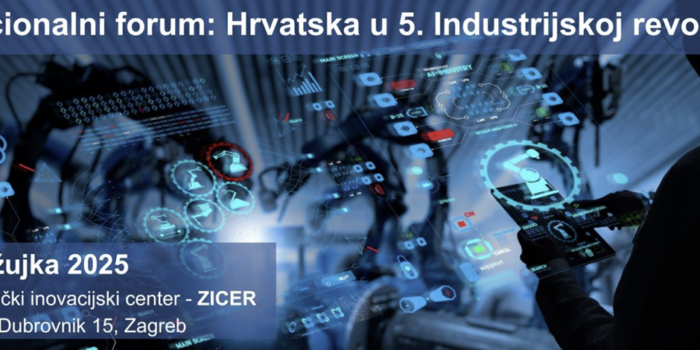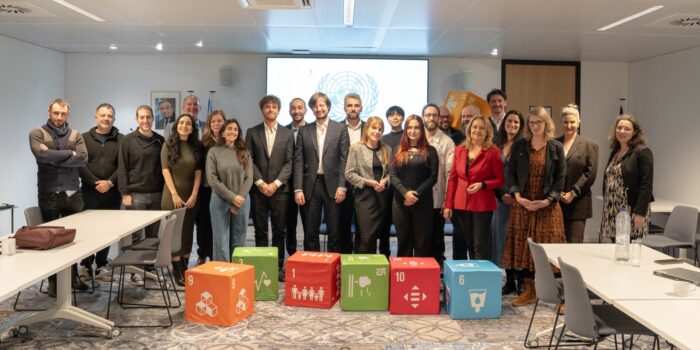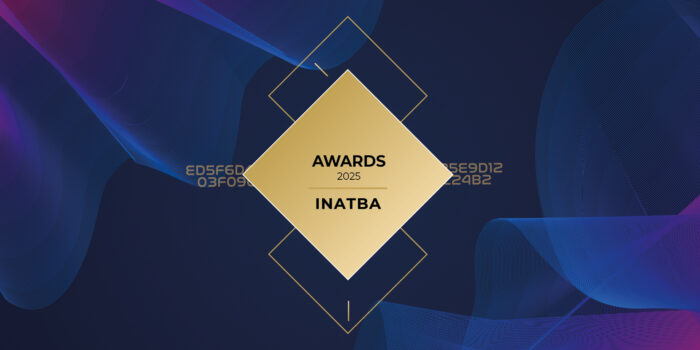12, 13 and 16 September 2024, online
Three follow-up meetings for the National Competence Centres for Social Innovation (NCCs) were organised with the goal of following up on the needs highlighted and proposals made at the kick-off event in Brussels. identified the most important topics to address collaboratively and design how NCCs are going to work together.
The meetings welcomed 47 participants in total from National Competence Centres from 20 EU Member States (MS), namely Belgium, Croatia, Czechia, Denmark, Estonia, Finland, France, Germany, Greece, Ireland, Italy, Latvia, Malta, Netherlands, Poland, Portugal, Romania, Slovenia, Spain and Sweden.
Prior to the meetings, participants were invited to join a group with similar capabilities and needs to design a collaborative learning pathway. As a result of this suggestion, 3 groups were formed (advanced, medium, and early stage of NCC development). This was an initial configuration, but the NCCs’ delegates were allowed to later change the learning groups, create new ones, or participate in various groups simultaneously. This learning path is designed to gather a variety of practices and to develop different models under a common framework, providing each MS with the possibility to adapt support systems to its own context.
The first meeting, held on the 12th of September, brought together representatives of the NCCs that are in the medium stage of development. The representatives from Italy, Romania, Estonia, Denmark, Finland, Poland, Spain, and Ireland took part. The lead expert, Gorka Espiau, made a brief recap of the process developed so far and presented the list of specific needs to be addressed by NCCs, which was identified in the last meeting in Brussels. All participants were invited to select the topics that were most relevant for the NCCs at that stage.
After a fruitful discussion, the participants agreed that starting with two topics (1. How to better engage ESF+ MAs, other government departments and political representatives in the process; and 2. Exploring new financial models for NCCs) would be the first step to build a collaborative learning pathway for the NCCs aligned with the ESF+ Social Innovation priority.
The second part of the session was focused on how to work together on these issues. The lead expert suggested to select a facilitator for each group discussion. These sessions are foreseen to take place in October and the whole group will reconvene in November. The facilitator will look for practical experiences and lessons learned from other NCCs in the same development stage (advanced, medium, early stage) that could be shared with the other participants during the session. He/she will also encourage the participants to share other examples during the session. The NCCs represented in this group could take part in both discussions, if they can contribute to the and make them more valuable for other participants. A summary of the session will be circulated for all NCCs. Denmark (Anne Vorre Hansen; anne@ akademietforsocialinnovation.dk; Anders Folmer Buhelt anders@akademietforsocialinnovation.dk) and Romania (Cristina Pojoga; cpojoga@fonduri-structurale.ro) volunteered to facilitate these discussions and co-facilitators, Italy (Patrizia Saroglia; saroglia@fondazionebrodolini.eu) and Ireland (Mario Vottero; mario@rethinkireland.ie), were also selected.
The lead expert will also update all NCCs on the latest developments in the learning process at the next meeting. Additionally, the lead thematic expert of the Community of Practice on Social Innovation (SI CoP), Armelle Ledan, made very useful and practical suggestions to connect these learning activities with the rest of the conversations that are taking place in SI CoP.
The second meeting convened the NCCs that are considered to be at the more advanced stage of development. The meeting took place online on Friday, the 13th of September, and representatives from Greece, Czechia, Germany, Portugal, France, Sweden, Belgium, and Ireland took part. The lead expert, John Healy, gave an overview of the process to date and highlighted that the purpose of this meeting was to build on the discussions that took place in Brussels in June. The objective of the call was to create sub-groups that would collectively work on topics of shared interest to NCCs and to consider how we might do that. The long list of issues highlighted by all the NCCs was outlined, and then we returned to the specific issues that the groups had raised in Brussels.
After a productive discussion, three topics were prioritised to work on:
(1) Mapping of Social Innovation with a particular focus on rural and coastal communities (leading countries – Germany (Norbert Kunz; kunz@socialimpact.eu) and Greece (Amalia Zepou; azep63@gmail.com)).
(2) SocialImpactassessmentofsocialinnovationandthespecificroleofNCCsintheseprocesses(leadingcountries– Belgium (Tomas De Groote; tomas@socialeinnovatiefabriek.be), Greece (Yiorgos Alexopoulos; galexop@aua.gr), and Sweden (will join if additional human resources are available);
(3) Informing and connecting with the new programming period of the EU in terms of the potential of social innovation (leading countries – Sweden (Anna Tengqvist: anna.tengqvist@mau.se), Portugal (Sofia Amândio; sofia.amandio@inovacaosocial.portugal2020.pt), Germany (Daniel Krüger; daniel2.krueger@tu-dortmund.de), and France (Alexis Bouges; alexis.bouges@avise.org)).
It was agreed that the sub-groups would consider what is possible between now and December on each of these topics and try to have initial findings by the online meeting in October. In December, the group will reflect on what is most productive in terms of advancing these topics further. It was suggested that other NCCs might wish to join these discussions and that there was an openness to wider involvement. The creation of a platform for knowledge-sharing and communication was proposed.
The third meeting gathered the group of NCCs that were identified as being at the early stage of development. This meeting was organised on the 16th of September. In total, representatives of 6 MS (Latvia, Malta, the Netherlands, Croatia, Slovenia, and Slovakia) joined this meeting. The lead expert, Eglė Butkevičienė, introduced the agenda of the meeting and made a short recap of the results and discussion points from the last kick-off meeting in Brussels. In the kick-off meeting, members of this group started the discussion on the learning needs for NCCs’ further development. The list of main points included several items:
- – Mapping tools and methodologies.
- – Existing models and best practices.
- – Knowledge exchange practices and networking needs of stakeholders.
- – Technical structure options of the NCC.
- – SIM database additions.
After the recap, the discussion focused on selecting 2–3 of the most significant topics to work on. Moreover, during the discussion new topics such as value creation, communication, and impact measurement were mentioned as the most important ones for NCCs to work on.After the corresponding discussion, the participants agreed to work on 2 major topics:(1) Understanding the tools and methodologies that NCCs can use in developing their activities (leading countries – Slovakia (Matúš Tluščák; matus.tluscak@employment.gov.sk), Malta [TBC], and Croatia (Mija Crnjaković; mcrnjakovic@net.efzg.hr)).(2) Exploring possibilities for knowledge exchange among different consortiums (leading countries – Latvia (Andris Izinkevics; andris.izinkevics@sif.gov.lv), the Netherlands (Robin Molenaar; Rmolenaar@minszw.nl), and Slovenia (Klemen Balanč; klemen@center-noordung.si).The first topic addresses the mapping tools and methodologies, as well as the technical structure of NCC. The second one is more focused on options for knowledge exchange, networking, value creation, and social impact measurement. The second part of the session was focused on how to work together on these 2 topics. The lead expert suggested that NCCs’ representatives form subgroups according to their interests and select a lead country to facilitate communication within each subgroup. It was proposed by the lead expert to have a follow-up meeting to discuss the feedback from the sub-groups’ internal deliberations. Participants supported the idea of a short meeting; thus the decision was made to have a half-an-hour catch-up meeting by mid-October to be ready for the next online meeting of all NCCs on the 30th of October. The date for the follow-up meeting has been set for the 14th of October at 9:00 CET.
Next Steps
The expert group had a subsequent follow up meeting to reflect on the content and confirm next steps. As for the specific suggestions, the expert group will (1) contribute to the clarification of the specific outputs of this process (lessons learned and new tools), (2) explore the possibility of pairing up those who experience more difficulties with the early adopters, (3) confirm the study visits in 2025 as a valuable asset for the new NCCs, and (4) help generate a new matrix of identified needs and existing competences.In case you are interested in working with one or another subgroup, please contact the leading expert (Group 1: John Healy john.healy@genio.ie; Group 2: Gorka Espiau espiau@agirrecenter.eus; Group 3: Eglė Butkevičienė egle.butkeviciene@ktu.lt) or




